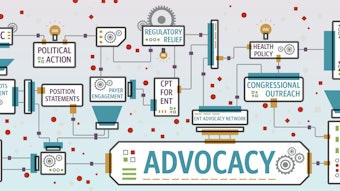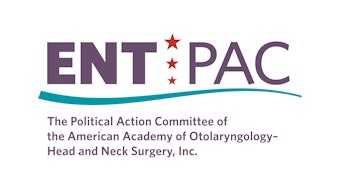When to Use the HCPCS Code G2211
Learn how to account for resource costs associated with longitudinal patient care for ongoing, complex conditions.

 R. Peter Manes, MD, and Lance A. Manning, MD.
R. Peter Manes, MD, and Lance A. Manning, MD.
What is the first question to help determine whether code G2211 is appropriate for a patient encounter?
I believe the first question would be, “Is this a patient that I have been seeing and treating consistently for a single, serious condition or complex condition on an ongoing basis?” It is important to establish this first because G2211 recognizes the work that has gone into developing that type of physician–patient relationship—a relationship that is longitudinal in nature.
Does G2211 have limited use in otolaryngology practices?
Actually, it is a code that can be used in diverse clinical scenarios and disorders. Head and neck cancer care, pediatric airway disorders, refractory chronic sinusitis management, sleep apnea management, and voice disorders are just a few that come to mind. The main idea is to determine whether this is a patient with a complex, serious condition who has required, and continues to require, long-term care.
We have talked about the appropriate use of G2211; when should it not be used?
G2211 cannot be used when the office or outpatient E/M visit is reported with payment modifiers, such as -24, -25 or -53. As we discussed, this is a code that can be used when the services provided are longitudinal. So, in cases in which time is limited, discrete, or for routine visits for acute care, this code should not be used.
What can our practice managers do to ensure G2211 is properly used and adjudicated in our practices?
Your administrators and coding staff should be aware of the importance of G2211. We recommend actively reviewing your contracts and speaking with your provider relations representatives about adding G2211 to your fee schedule. Private payers are not required to cover and pay separately for G2211 so policies will vary from payer to payer. It is essential to educate your coding staff about the requirements and coverage by the payers with which you are credentialed. Ensure your EHR and billing systems are fully updated to reflect the 2024 Medicare physician fee schedule.
View the Academy’s detailed information about code G2211. Also, listen to the Add-On Code G2211: What You Need to Know podcast on this topic.




















